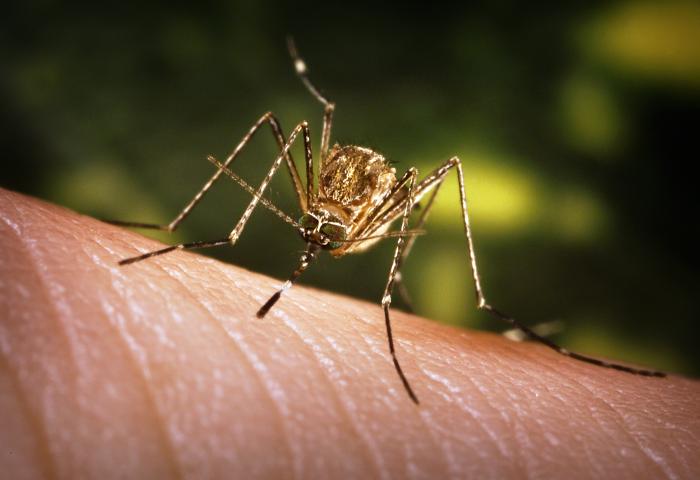The Southern Nevada Health District is reporting its first human case of West Nile virus in Southern Nevada in 2017. The individual, a male over the age of 50, has the more serious neuroinvasive form of the illness. The Health District will not provide additional information regarding this individual. There were two reported West Nile cases and three cases of St. Louis Encephalitis, a similar mosquito-borne illness, in 2016.

“Mosquito bites and the diseases spread by infected mosquitoes are preventable,” said Dr. Joe Iser, Chief Health Officer for the Health District. “Southern Nevada residents can take preventive measures against mosquito bites and simple steps to eliminate mosquito breeding sources around their homes to protect themselves, their families, and communities.”
West Nile virus is spread through the bites of infected mosquitoes that have acquired the virus by feeding on infected birds. The illness is not spread person to person. Many people with the virus will have no symptoms or very mild clinical symptoms of illness. Mild symptoms include fever, headache, body aches, nausea, vomiting, and sometimes swollen lymph glands or a skin rash on the chest, stomach, and back. In some cases, the virus can cause severe neurologic illness and even death.
The Southern Nevada Health District’s Vector Surveillance Program regularly tests mosquito pools for West Nile, St. Louis Encephalitis, and Western Equine Encephalitis. To date, 444 mosquito traps have been set and 10,074 mosquitoes submitted to the Nevada Department of Agriculture Animal Disease Laboratory for analysis. All mosquitoes submitted have been negative for disease. The program also conducts surveillance for Aedes aegypti and Aedes albopictus mosquitoes, the two species known to spread the Zika virus. These mosquitoes have not been detected in Southern Nevada, but have been found in neighboring states.
The Health District recommends the following to prevent mosquito bites and to eliminate breeding sources:
- Use Environmental Protection Agency (EPA)-registered insect repellants containing DEET, Picaridin, IR3535, Oil of lemon eucalyptus (OLE), or 2-undecanone.
- Wear pants and long-sleeved shirts to reduce mosquito exposure when outdoors.
- Eliminate areas of standing water around your home, including non-circulating ponds, “green” swimming pools, and accumulated sprinkler runoff, which support mosquito breeding.

